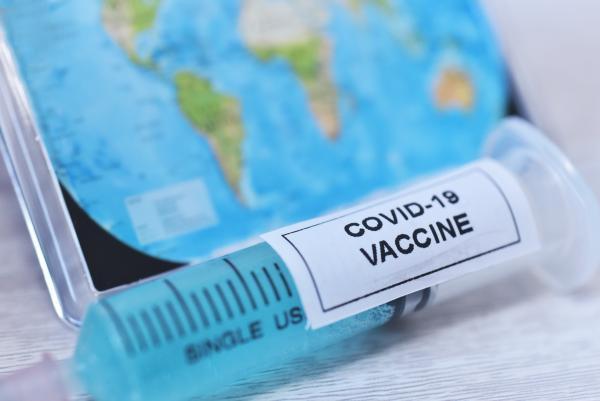
- The European Investment Bank (EIB) is partnering with the Government of Barbados to provide EUR 50 million (USD 60 million) in long-term financing to support the country’s COVID-19 pandemic response and support new healthcare investments.
- The long-term financing will strengthen the national emergency response, as well as supporting pandemic preparedness and other interventions included in the national response plan.
- The financing complements the EU’s support for fair and equitable vaccine access through Gavi, the Global Vaccine Alliance in the Caribbean, which includes a grant of EUR 8 million (USD 9.8 million) to the Caribbean Public Health Authority (CARPHA), and help ensure access to vaccines.
The European Investment Bank (EIB) is partnering with the Government of Barbados to provide EUR 50 million (USD 60 million) for COVID-related emergency healthcare expenditure, targeting both medical care and efforts to limit the spread of the virus.
The EIB loan will support the costs of strengthening Barbados’ public health system including, for example, treatment capacity for COVID-19 patients, lab capacity and equipment, quarantine facilities, IT equipment, vaccine storage, track and tracing, and logistics, transport and monitoring activities. The financing helps relieve the financial burden of increased healthcare expenditure during a time of economic hardship.
“It was important to our Covid strategy that we were able to mount an early, health care response to the pandemic, in particular, to identify, build and retrofit dedicated isolation and quarantine facilities. This was so that we could, as far as possible, protect the country’s main hospital and clinic facilities from extensive Covid spread, and from having to manage Covid-related care along with other health care responsibilities” according to Minister in Economic Affairs and Investment, Hon. Marsha Caddle. M.P.
She added, “This low-cost financing allows us to retroactively finance the building of Harrison’s Point and other Covid expenditure and undertake new expenditure related to the pandemic. But it also allows us to ensure that we can still provide important health care services, such as improved care through an expanded Accident and Emergency department, and continued attention to cancer care and chronic, non-communicable diseases. EIB has shown tremendous leadership and innovation in providing low-interest, concessional terms for crisis financing, so that countries like Barbados do not have to explode our debt beyond sustainable levels in order to help our people survive.”
“This partnership between the Government of Barbados and the European Investment Bank will help protect vulnerable groups against the impact of the pandemic” stated EIB Vice President Ricardo Mourinho Félix. “As part of Team Europe, the EIB is currently working to increase its financing to strengthen health and economic resilience to the pandemic around the world. This financing is part of the EIB’s global response to the pandemic, including over EUR 5 billion (USD 6 billion) for urgent health investments, accelerating long-standing support for private sector investment in more than 100 countries around the world.”
Ambassador of the European Union, H.E. Malgorzata Wasilewska added, “The financing of the EIB complements the grants that the EU has provided the region in response to the pandemic. Barbados will soon receive EUR 3.5 million (USD 4.2 million) in social protection funding due to the challenging economic situation the country faces, and we have provided EUR 8 million (USD 9.8 million) to the Caribbean Public Health Authority (CARPHA). This funding has contributed to ensure that all Caribbean states can access large quantities of affordable vaccines through the COVAX Facility, managed by Gavi, the global Vaccine Alliance.”
Team Europe and the COVID-19 pandemic response
The financing falls under the global “Team Europe” response to the pandemic. Confronted with this global crisis and in line with its responsibilities as a global player, the EU launched its “Team Europe” initiative on 8 April 2020. The budget mobilised so far, which equals EUR 40.5 billion, combines resources from the EU, its member states and financial institutions, including the European Investment Bank. Specifically, Team Europe support during the COVID-19 pandemic is focused on:
- the emergency response to humanitarian needs,
- strengthening health, water and sanitation systems,
- mitigating the social and economic consequences of the pandemic.
In addition, EU leaders recently pledged to donate at least 100 million doses vaccine doses before end 2021.
EU support to the Caribbean Public Health Authority
EU support to CARPHA has increased the capacity of CARPHA and CARICOM Member States to respond to outbreaks of the COVID-19 virus, strengthen public education and behaviour change programmes on communicable diseases, as well as strengthen regional coordination and the institutional capacity of CARPHA in preparing for and responding to public health emergencies.
Background information
The European Union’s (EU) relationship with the Caribbean centres on trade, political, and development partnerships. On the development front, the EU is the Caribbean’s largest partner. Regarding trade, the EU signed the first regional Economic Partnership Agreement (EPA) in 2008 and we are the region’s second largest trading partner.
https://ec.europa.eu/international-partnerships/home_en
The EIB has provided a comprehensive response to the coronavirus pandemic around the world that will provide up to €6.54 billion in financing. This financing is part of the Team Europe response to the pandemic and supported by guarantees from the EU budget.
As the EU Bank, the EIB has been active in the Caribbean for 40 years, supporting public infrastructure and private sector development through its loans and technical assistance programs. The EIB is committed to putting EU climate goals into practice by partnering at a global scale, lending over EUR 26 billion euros to climate action and environmental sustainability projects last year around the world, and providing over EUR 6 billion euros in COVID-response loans since the start of the pandemic.




